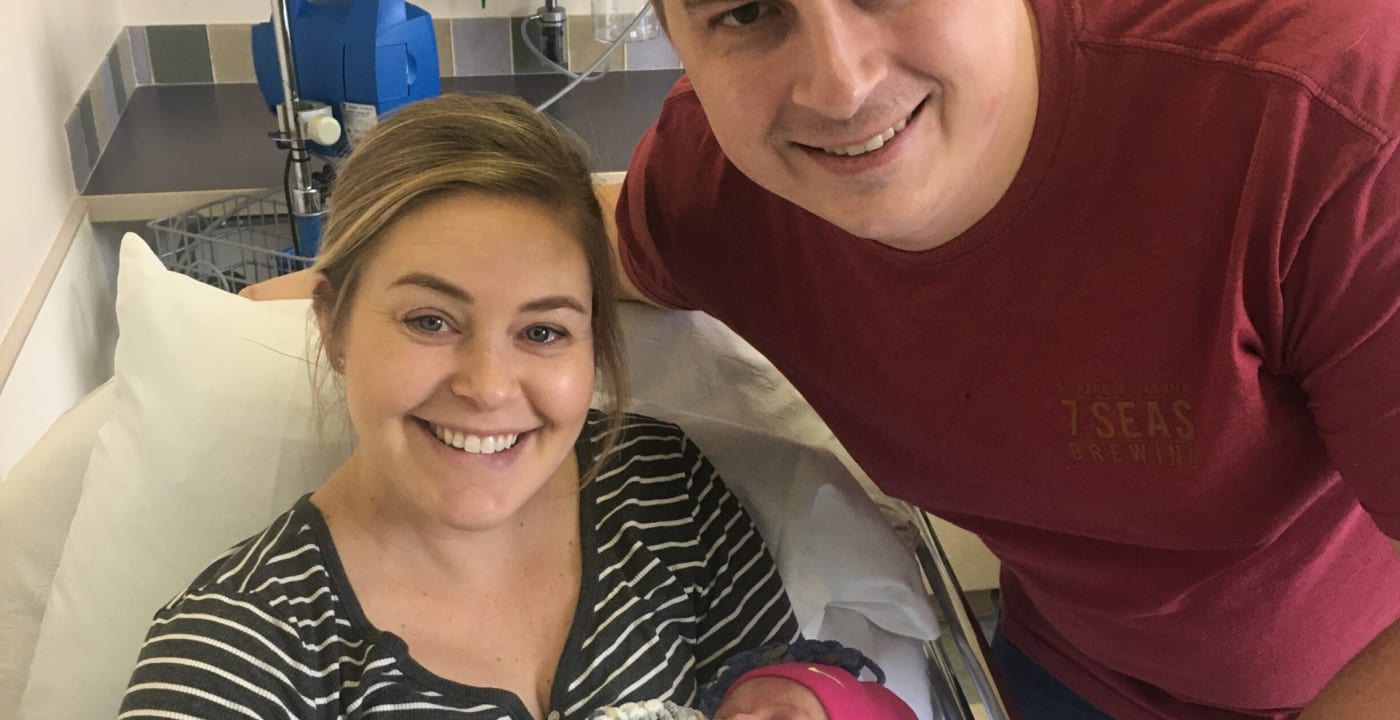Youngest baby in the world with spinal muscular atrophy diagnosis receives gene therapy at Mary Bridge Children’s Hospital

Danielle Coleman, MD, of Pediatrics Northwest knew during the first appointment with her 3-day-old patient that something was amiss. The newborn had low muscle tone, weakness and no startle reflex. Dr. Coleman urgently referred her to the neurology department at Mary Bridge Children’s Hospital, where it was confirmed that the baby had spinal muscular atrophy (SMA) type 1.
SMA is a recessive neuromuscular disorder that affects one in 10,000 babies in the United States every year. The disorder is caused by lack of a functioning SMN1 gene, which creates an essential protein called the survival motor neuron. Without this protein, a child becomes progressively weaker as motor neurons die.
SMA type 1 is the most common and severe and is typically fatal without treatment. Testing for SMA is scheduled to be added to the standard newborn screen in Washington state later this year.
Breakthroughs in treatment for this otherwise fatal condition have led to human gene therapy, which is currently available in two forms. The first is a one-time IV treatment that transfers the missing genetic material directly into cells, carried within the shell of a virus known as AAV9. For those who cannot receive this treatment, serial lumbar punctures to give the drug nusinersen (Spinraza) alter a similar gene to produce the missing protein.
Children who received either of these treatments in clinical trials have thrived and achieved milestones that would have been impossible otherwise. Many even expect a normal lifespan. The response is better when given earlier and to those who are stronger at diagnosis.
Much of the care surrounding such a diagnosis may require out-of-pocket payments that families cannot afford. With generous community support, Mary Bridge Children’s Foundation was able to create a fund that helps families support their children through treatments like these.
In February 2020, Mary Bridge Children’s Hospital was able to provide a drug called Zolgensma to Dr. Coleman’s patient — the most definitive gene therapy available for SMA type 1. Making them the youngest postnatally diagnosed baby ever to receive the treatment worldwide.
Dr. Coleman’s patient was 2 weeks old at the time of her infusion. She is moving more already, and the team has high hopes for her future. The success was largely thanks to Dr. Coleman and the multidisciplinary team of people who made gene therapy possible for this family.
Your donations to Mary Bridge Children’s Foundation help provide care for all children, regardless of their family’s ability to pay. Gifts of all sizes help children reach their potential.




